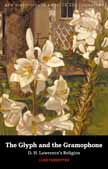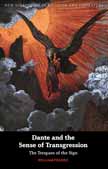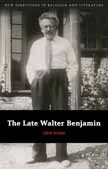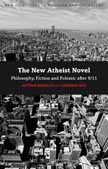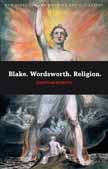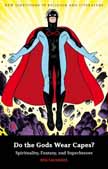New Directions in Religion and Literature
New Directions in Religion and Literature is a series of short monographs written by leading and rising scholars in this field, and is edited by Emma Mason (University of Warwick) and Mark Knight (University of Toronto). The series is published by Bloomsbury.
Introduction to the series
The field of literary studies has always been interwoven with religious ideas, its development dependent on a relationship with religion established by critics like Matthew Arnold. Before Arnold, the theorization of aesthetic ideas, like the sublime, together with the tendency of critics to constantly refer back to the Bible as a source of genre and form, laid strong religious foundations for the Victorians’ literary endeavours. Given this, it is perhaps no surprise that the re-evaluation of the discipline of literature that accompanied the rise of theory in the second half of the twentieth century saw, among other things, a renewed appreciation of the capacity of religion and literature to contribute to our understanding of the other. This new critical awareness manifested itself in modes of theological inquiry that sought to recover the centrality of literature (the rise of Narrative Theology, for example), in scholarship committed to reflecting on the place of religion and theology in literary studies (such as the inauguration of the journal Literature and Theology) and in critical inquiry exploring the nature of the text and our commitment to it (inspired by the theoretical thinking of thinkers as diverse as Gadamer, Buber, Derrida and Benjamin).
As thinking continues to develop into the twenty-first century, the question of how these two disciplines interact with one another invites fresh thought, both to restore the terms of their interaction and also to explore the now urgent political significance of religious debate in our current global climate. A generation of scholars once committed to secular criticism, Terry Eagleton for instance, are now turning to religion as a way to redress literary queries materialist criticism has evaded, and Stanley Fish, writing in The Chronicle of Higher Education (2005), has speculated that religion might “succeed high theory and race, gender and class as the centre of intellectual energy in academe”. A new group of scholars, following the lead of those at the forefront of religion and literature in the latter part of the twentieth century, are eager to contribute to and read work intimate with both religious and literary debates. The purpose of this series is to showcase this new work in a succession of books that address the culturally and politically loaded question of how religion and literature enable readings of each other. Books will pursue a variety of theoretical approaches as they engage with writing from different religious and literary traditions. Collectively, the series will offer a timely critical intervention to the interdisciplinary crossover between religion and literature, speaking to wider contemporary interests and mapping out new directions for the field in the early twenty-first century.
Published titles
Jon Roberts, Blake. Wordsworth. Religion. (2011)
Ben Saunders, Do Gods Wear Capes: Spirituality, Fantasy and Superheroes (2011)
Jo Carruthers, England's Secular Scripture: Islamophobia and the Protestant Aesthetic (2012)
Susan Colon, Victorian Parables (2012)
John Schad, The Late Walter Benjamin (2012)
William Franke, Dante and the Sense of Transgression (2012)
Forthcoming titles
Luke Ferretter, The Glyph and the Gramaphone: D. H. Lawrence's Religion (2013)
Peter Jager, Buddhism and Radical Poetics (2013)
Rhian Williams, Incarnational Poetics (2013)
Samantha Zacher, Becoming the Chosen People: Rewriting the Old Testament in Anglo-Saxon England (2014)
Emma Mason and Mark Knight, Faithful Reading: Poetry and Christian Practice (2014)
